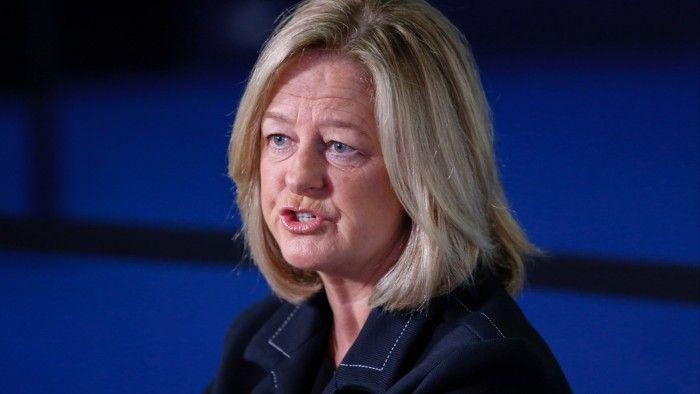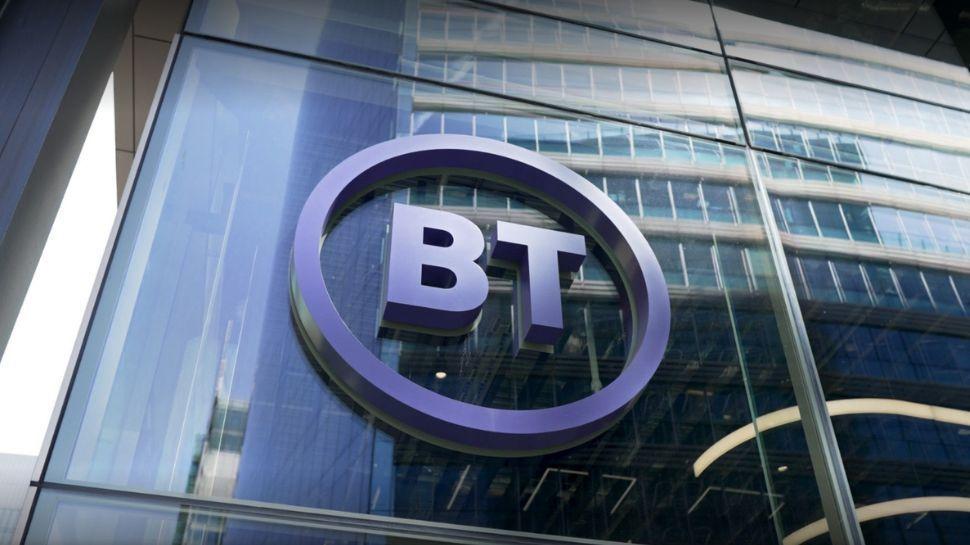BT CEO Signals Potential for Deeper Job Cuts as AI Advances, Considers Openreach Spin-off
8 Sources
8 Sources
[1]
BT chief says AI could deliver more job cuts
As others roll back use of tech due to quality, customers preferring to talk to humans Not content with a corporate blueprint to cut up to 55,000 employees by 2030, UK telecoms giant BT now says even more staff could be replaced with AI, despite the experience of some orgs that have already tried this. In an interview with the Financial Times, BT Group chief exec Allison Kirkby said previously announced plans to slash headcount "did not reflect the full potential of AI," and there "may be an opportunity for BT to be even smaller by the end of the decade." The formerly state-owned telecoms biz said in 2023 that it aimed to shed as many as 55,000 jobs by 2030, equating to 42 percent of its workforce, in a bid to bolster profit margins. The move was initiated by former CEO Philip Jansen. Partly, these layoffs would be found by downsizing network engineers currently toiling to meet BT's pledge to bring fiber-to-the-premises (FTTP) within reach of 25 million UK properties, as the need for this labor-intensive activity is expected to decline over the coming years. Around 10,000 of the cuts are likely to be made in customer serivces, BT has told The Register. "There is a sort of 10,000 reduction from that sort of automated digitization, we will be a huge beneficiary of AI. I believe generative AI is a huge leap forward. Yes, we have to be careful, but it is a massive change," a spokesperson said in 2023. However, it seems that Kirkby believes that recent developments in AI present new opportunities for BT to operate its business divisions using fewer resources, and thereby lighten the payroll even further. Perhaps Kirkby and the rest of the BT leadership should look at what happened with Klarna, the online financial services biz. It announced in February this year that it had introduced an AI assistant powered by OpenAI that was doing the equivalent work of 700 full-time customer services agents. Yet just a few months later, the company found itself rehiring human agents due to customer dissatisfaction, and CEO Sebastian Siemiatkowski acknowledged that an overemphasis on cost-cutting led to it delivering a poorer service. Likewise, language learning app developer Duolingo declared an "AI-first" strategy earlier this year, and said it would ditch contract workers (translators) whose roles it could handle. Facing a customer backlash, CEO Luis von Ahn recently appeared to signal an about-turn, saying: "To be clear: I do not see AI as replacing what our employees do," and "I see it as a tool to accelerate what we do." Analyst Gartner also recently reported that half the organizations it surveyed indicated that plans to significantly reduce their customer service workforce by replacing them with AI would be abandoned. Another revelation from Kirkby was that she was open to selling off any part of BT, including its infrastructure arm, Openreach. She told the FT she did not feel the value of Openreach was reflected in the company's share price, and if the situation persisted, BT "would absolutely have to look at options," and the time to consider whether to spin off Openreach would come when it had finished upgrading its entire network to full fiber. We asked BT for comment. A spokesperson was at pains to clarify that Kirkby meant only that it was something BT might have to do in future, but it was not considering this move now and possibly never will. Meanwhile, the telco giant is facing a revolt from manager grade staff over a "derisory or non-existent pay rise" they had been offered. This is understood to include employees from "second line support" and upwards, about 15,000 heads. Two thirds were offered 1.28 percent rise, with others getting nothing, according to trade union Prospect. ®
[2]
BT chief eyes deeper job cuts as AI becomes more powerful
Allison Kirkby said advances in artificial intelligence could deepen significant job cuts under way at BT, as the chief executive of the UK telecoms group opened the door to a possible future spin-off of Openreach. Kirkby told the Financial Times that BT's plans to cull more than 40,000 jobs and strip out £3bn of costs by the end of the decade "did not reflect the full potential of AI". If AI presented new opportunities for BT to run the business with fewer resources, Kirkby said it would need to adapt to remain competitive. "Depending on what we learn from AI . . . there may be an opportunity for BT to be even smaller by the end of the decade," she said in an interview. Since taking over in February last year, Kirkby has doubled down on her predecessor Philip Jansen's plans announced in 2023 to cut up to 55,000 jobs by 2030. She has refocused BT on the UK, selling off its Italian business and its Irish wholesale and enterprise division. The FTSE 100 company last month carved out the group's international business into a separate unit and is open to offers for the entire division, said a person familiar with the matter. Investors including Indian billionaire Sunil Mittal, who owns a 24.5 per cent stake, have welcomed Kirkby's efforts to streamline the former state monopoly. BT's shares have rallied 65 per cent since she took over as chief executive. Kirkby, who served on BT's board as a non-executive director before becoming chief executive, said she did not feel the value of Openreach was reflected in the company's share price. If that situation persisted, the chief executive said BT "would absolutely have to look at options". She said "the time to reconsider" whether to spin off Openreach would be once it had finished upgrading its network to full fibre. At that point, its capital expenditure will reduce to normal levels and its free cash flow will rebound. Openreach's build-out of the network will slow once it serves 25mn homes, a target it expects to hit next year. After that point the company will slow the build-out to about 1mn homes a year, down from the current pace of 1mn homes a quarter. BT aims to reach 30mn homes with Openreach by 2030. Analysts at New Street Research estimate Openreach's current value to be about £30bn, well in excess of BT's current market value of £18.5bn. Kirkby said her preference was to get the value of the network reflected in BT's shares, rather than spin it off. BT's chief wants to exploit the disruption caused by the recent £16.5bn merger of Vodafone and Three, which has created a new market leader in UK mobile, to grow BT's retail brands, EE and Plusnet. "Clearly when competition goes through disruption . . . that is an opportunity for us to be able to promote the benefits of our brands and services versus others," she said. Kirkby said she would consider running BT's retail brands on an altnet in areas of the UK where it was uneconomical for Openreach to build out its own fibre network. The outcome of last week's spending review led economists to predict chancellor Rachel Reeves will raise taxes further. Kirkby, who estimated increases in employers' national insurance would cost BT more than £100mn, warned "the last thing we all need is to be further taxed". BT's chief, who grew up in working class Glasgow and advises the business department's board of trade, added the Labour government was "working very proactively" with business. "It takes time to turn around an economy that has been impacted by a number of shocks."
[3]
BT CEO eyes deeper job cuts as AI becomes more powerful, FT reports
June 15 (Reuters) - BT Group (BT.L), opens new tab Chief Executive Allison Kirkby said advances in artificial intelligence could deepen significant job cuts under way at the British telecoms company, the Financial Times reported on Sunday. Kirkby told the newspaper that BT's plans to cull more than 40,000 jobs and strip out 3 billion pounds ($4 billion) of costs by the end of the decade "did not reflect the full potential of AI". "Depending on what we learn from AI . . . there may be an opportunity for BT to be even smaller by the end of the decade," the FT quoted her as saying. Britain's biggest broadband and mobile provider had said in 2023 it would cut as many as 55,000 jobs, including contractors, by 2030, with then-CEO Philip Jansen saying the company would rely on a much smaller workforce and significantly reduced cost base by the end of the 2020s. Kirkby, who took over from Jansen a year ago, has also opened the door to a possible future spin-off of Openreach, the company's network infrastructure business, the FT said. She said she did not feel the value of Openreach was reflected in the company's share price and if that persisted, BT "would absolutely have to look at options". BT said last month that strong demand for fibre broadband and more than 900 million pounds of cost savings had helped shore up its full-year earnings and boost cash flow. Resilience at Openreach offset declines in revenue and profits in its business and consumer units, where legacy voice services continued to wane and handset sales fell. ($1 = 0.7372 pounds) Reporting by Rishabh Jaiswal in Bengaluru; Editing by Raju Gopalakrishnan and William Mallard Our Standards: The Thomson Reuters Trust Principles., opens new tab Suggested Topics:Artificial Intelligence
[4]
AI could lead to more job cuts at BT, says chief executive
Allison Kirkby wants to streamline telecoms company, which is already planning to shed 55,000 workers The chief executive of BT has said that advances in artificial intelligence could presage deeper jobs cuts at the FTSE 100 telecoms company, which has already outlined plans to shed up to 55,000 workers. Two years ago the company said that between 40,000 and 55,000 jobs would be axed as it set out to become a "leaner" business by the end of the decade. However, in a weekend interview its chief executive, Allison Kirkby, said the plan, which includes stripping out £3bn of costs "did not reflect the full potential of AI". "Depending on what we learn from AI ... there may be an opportunity for BT to be even smaller by the end of the decade," Kirkby said in an interview with the Financial Times. BT, which is the biggest broadband provider in the country, laid out plans in 2023 to cut the size of its workforce, including contractors, by 2030. Philip Jansen, who was chief executive at the time, said the company could rely on a much smaller workforce and cost base by the end of the decade. Kirkby, who took over from Jansen last year, has pushed for the company to streamline its operations - selling its Italian business and its Irish wholesale and enterprise unit - and focus more on improving in the UK. Last month BT spun off its international business into a separate division, but is reportedly open to offers for this area of the business, according to the FT, which cited a person familiar with the matter. Kirkby also said that she did not think the value of BT's broadband network business Openreach was reflected in its share price. If this continued, BT "would absolutely have to look at options". The "time to reconsider" whether to spin off the business would take place once it has completed upgrading its network to full fibre, she said. However, Kirkby said that her preference would be for the BT share price to reflect the worthof Openreach rather than to spin it off. It emerged last week that BT was weighing up a potential takeover of the telecoms and broadband company TalkTalk. Its smaller rival has about 3.2 million customers, although it has struggled since it was taken private by Toscafund, a London-based investment firm, in a £1.1bn deal that added £527m of debt to its balance sheet in 2021.
[5]
BT CEO warns increasing AI could lead to greater job cuts
BT CEO Allison Kirkby has indicated the increasing adoption of artificial intelligence could lead to even deeper cuts beyond current plans to trim the company's workforce. Kirkby confirmed plans, which are hoped to save £3 billion by 2030, to cut 40,000-55,000 jobs by the end of the decade. In an interview with the Financial Times, Kirkby stated: "Depending on what we learn from AI... there may be an opportunity for BT to be even smaller by the end of the decade." Kirkby took over BT in 2024, replacing former CEO Philip Jansen, and has led several saving exercises, including selling off non-core assets like the company's Italian and Irish units. The FT also noted that BT had spun off its international business last month, citing sources familiar with the matter, suggesting that it could be open to offers on it. However, the CEO believes that BT's current share price (£186.45) does not reflect the true value of Openreach - its broadband network arm. If this perceived undervaluation continues, BT could consider spinning off Openreach after the fibre rollout is complete, however Kirkby said she would prefer the share price to improve rather than having to resort to yet another spinoff. Speaking about BT's latest full fiscal year, which ended on March 31, Kirkby said the company had realized "over £900m of annualized cost savings." She blamed "lower international sales and handsets" on the 2% dip in revenue, to £20.4 billion. BT's reach across the UK could be about to get even stronger, with The Guardian revealing that the company could have entered initial discussions to buy out TalkTalk, a smaller broadband provider that has struggled financially. However, such an acquisition, together with BT's ownership of mobile network provider EE, could spell out great domination over UK networks, potentially sparking an antitrust investigation. The recently-completed merger of Three and Vodafone was subject to an in-depth investigation before eventually approved by the UK's Competition and Markets Authority (CMA).
[6]
BT could make deeper job cuts amid AI revolution - FT
(Alliance News) - BT Group PLC's boss said the emergence of artificial intelligence technology could lead to the telecommunications firm deepening job cuts, the Financial Times reported on Sunday. BT back in May 2023 announced plans to cut up to 55,000 jobs by the end of 2030. The plans were announced under the leadership of Chief Executive Allison Kirkby's predecessor, Philip Jansen. But those plans did not "did not reflect the full potential of AI", Kirkby told the FT. "Depending on what we learn from AI... there may be an opportunity for BT to be even smaller by the end of the decade," she said in an interview with the newspaper. Kirkby also suggested a sale of Openreach is a possibility. The CEO believes the value of the unit, which maintains network infrastructure, is not reflected in the BT share price. Kirkby said BT "would absolutely have to look at options" if this continues. BT shares closed 0.1% lower at 185.20 pence each in London on Friday. The stock has risen by just over a third over the past 12 months. Comments and questions to [email protected] Copyright 2025 Alliance News Ltd. All Rights Reserved.
[7]
BT CEO eyes deeper job cuts as AI becomes more powerful, FT reports
(Reuters) -BT Group Chief Executive Allison Kirkby said advances in artificial intelligence could deepen significant job cuts under way at the British telecoms company, the Financial Times reported on Sunday. Kirkby told the newspaper that BT's plans to cull more than 40,000 jobs and strip out 3 billion pounds ($4 billion) of costs by the end of the decade "did not reflect the full potential of AI". "Depending on what we learn from AI . . . there may be an opportunity for BT to be even smaller by the end of the decade," the FT quoted her as saying. Britain's biggest broadband and mobile provider had said in 2023 it would cut as many as 55,000 jobs, including contractors, by 2030, with then-CEO Philip Jansen saying the company would rely on a much smaller workforce and significantly reduced cost base by the end of the 2020s. Kirkby, who took over from Jansen a year ago, has also opened the door to a possible future spin-off of Openreach, the company's network infrastructure business, the FT said. She said she did not feel the value of Openreach was reflected in the company's share price and if that persisted, BT "would absolutely have to look at options". BT said last month that strong demand for fibre broadband and more than 900 million pounds of cost savings had helped shore up its full-year earnings and boost cash flow. Resilience at Openreach offset declines in revenue and profits in its business and consumer units, where legacy voice services continued to wane and handset sales fell. ($1 = 0.7372 pounds) (Reporting by Rishabh Jaiswal in Bengaluru; Editing by Raju Gopalakrishnan and William Mallard)
[8]
BT boss Kirkby expects AI to deepen job cuts, FT reports
(Reuters) -BT Group Chief Executive Allison Kirkby said advances in artificial intelligence could deepen significant job cuts under way at the British telecoms company, the Financial Times reported on Sunday. Kirkby told the newspaper that BT's plans to cull more than 40,000 jobs and strip out 3 billion pounds ($4 billion) of costs by the end of the decade "did not reflect the full potential of AI". "Depending on what we learn from AI . . . there may be an opportunity for BT to be even smaller by the end of the decade," the FT quoted her as saying. Britain's biggest broadband and mobile provider had said in 2023 that it would cut as many as 55,000 jobs, including contractors, by 2030. Its CEO at the time, Philip Jansen, said the company would rely on a much smaller workforce and significantly reduced cost base by the end of the 2020s. Kirkby, who took over from Jansen a year ago, has also opened the door to a possible future spin-off of Openreach, the company's network infrastructure business, the FT said. She said she did not feel the value of Openreach was reflected in the company's share price and if that persisted, BT "would absolutely have to look at options". In an emailed response to Reuters, BT said that Openreach is not something the company is actively looking at right now. It did not provide further comment on Kirkby's FT interview. BT said last month that strong demand for fibre broadband and more than 900 million pounds of cost savings had helped to shore up its full-year earnings and boost cash flow. Resilience at Openreach offset declines in revenue and profit at its business and consumer units, where legacy voice services continued to wane and handset sales fell. ($1 = 0.7372 pounds) (Reporting by Rishabh Jaiswal in BengaluruEditing by Raju Gopalakrishnan, William Mallard and David Goodman)
Share
Share
Copy Link
BT's CEO Allison Kirkby suggests that advancements in AI could lead to more job cuts beyond the already planned 55,000 by 2030. She also hints at a possible future spin-off of Openreach if its value isn't reflected in BT's share price.
BT's AI-Driven Job Cut Strategy
BT Group, the UK's largest telecoms company, is considering deeper job cuts as artificial intelligence (AI) technology advances. CEO Allison Kirkby has indicated that the company's current plan to reduce its workforce by up to 55,000 jobs by 2030 "did not reflect the full potential of AI"
1
. This strategy aims to streamline operations and boost profit margins in an increasingly competitive market.
Source: FT
Potential for Further Workforce Reduction
Kirkby stated, "Depending on what we learn from AI... there may be an opportunity for BT to be even smaller by the end of the decade"
2
. The company's initial plan, announced in 2023, aimed to cut 40,000 to 55,000 jobs, including contractors, by 2030. This reduction would account for approximately 42% of BT's workforce3
.AI Implementation and Customer Service Concerns
BT has already indicated that around 10,000 job cuts are likely to be made in customer services due to automated digitization
3
. However, recent industry experiences suggest caution in over-relying on AI for customer service. Companies like Klarna and Duolingo have faced customer dissatisfaction after implementing AI-driven customer service, leading to the rehiring of human agents3
.Financial Strategy and Cost-Cutting Measures
The job cuts are part of a broader strategy to strip out £3 billion of costs by the end of the decade
1
. BT has been focusing on streamlining its operations, including selling off its Italian business and Irish wholesale and enterprise division. The company has also carved out its international business into a separate unit, potentially open to offers1
.Openreach Spin-off Consideration
Kirkby has opened the door to a possible future spin-off of Openreach, BT's network infrastructure business. She stated that if Openreach's value is not reflected in BT's share price, the company "would absolutely have to look at options"
4
. However, Kirkby emphasized that her preference would be for BT's share price to reflect Openreach's worth rather than spinning it off5
.Related Stories
Market Position and Future Outlook
Despite the job cut plans, BT aims to exploit market disruptions, such as the recent merger of Vodafone and Three, to grow its retail brands, EE and Plusnet
1
. The company is also considering running its retail brands on alternative networks in areas where it's uneconomical for Openreach to build its own fibre network1
.
Source: TechRadar
Employee and Union Concerns
The aggressive cost-cutting measures have led to concerns among BT's workforce.

Source: The Register
The company is facing a revolt from manager-grade staff over what has been described as a "derisory or non-existent pay rise"
3
. This situation affects approximately 15,000 employees, with two-thirds offered a 1.28% raise and others receiving nothing, according to the trade union Prospect3
.References
Summarized by
Navi
[1]
[4]
Related Stories
AI job cuts hit UK hardest with 8% net losses as workers fear displacement across industries
26 Jan 2026•Business and Economy

European banks plan to eliminate 200,000 jobs by 2030 as AI transforms the industry
02 Jan 2026•Business and Economy

UK Businesses Face "AI Divide" as Microsoft Urges Adoption and Strategy
05 Mar 2025•Business and Economy

Recent Highlights
1
OpenAI secures $110 billion funding round from Amazon, Nvidia, and SoftBank at $730B valuation
Business and Economy

2
Pentagon accepts OpenAI's autonomous weapons restrictions after blacklisting Anthropic
Policy and Regulation

3
Trump orders federal agencies to ban Anthropic after Pentagon dispute over AI surveillance
Policy and Regulation





